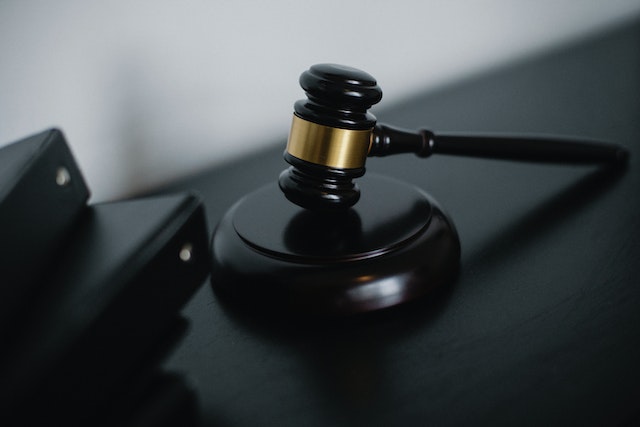
Can I Sue my Apartment Complex for not Fixing the AC?
The contents of this web page are for informational and educational purposes only, and nothing you read is intended to be legal advice. Please review our disclaimer before taking action based upon anything you read or see.
Yes. You can sue your apartment complex for not fixing ac. The rights and obligations are governed by the documented lease agreement you signed. To enforce the contract, you may sue them if they were supposed to correct it but have yet to.
The landlord must provide appropriate cooling and air conditioning in apartments with fixed or supplied air conditioning. Whenever the air conditioning in a renter’s leased house breaks, most state laws include remedies that the tenant may take advantage of.
These remedies, however, are not available if the renter, tenant’s family, or visitor negligently or willfully caused the air conditioning to cease operating.
If the landlord does not provide air conditioning, the tenant must notify the landlord in writing and wait until the landlord completes the necessary repairs.
To the landlord or the landlord’s designated representative, notices may be given personally. You might also use certified mail to deliver it to the landlord. Notifications sent by registered post are considered to be received on the day the landlord gets the notice.
Hence personal delivery of notices is highly advised. You may file a lawsuit against the apartment building if you don’t get a favorable outcome. Come along as we highlight more on this below.
Overview of Tenant Rights
Lease agreements are usually between a landowner and a tenant. They may be for a house or an apartment. Each person has certain duties and rights. The tenant’s lease agreement must be complied with, and the landlord must keep the property safe and livable.
To various municipal, state, and federal legislation, tenants also have some rights. These rights include the freedom from discrimination, the right to a decent house, and the freedom from having to pay more for a down payment than what is permitted by state law.
While renters with low earnings sometimes have few options for housing and are prepared to put up with certain inconveniences, a tenant’s rights are unalienable.
Additionally, tenants have a right to privacy. You need the landlord’s permission to let them access your apartment anytime they want just because they control the building you rent.
You have the right to adequate privacy and peaceful enjoyment of the home as a renter. The landlord may sometimes need to enter your rental home to make repairs or inspect anything, but they must usually notify you in advance.
Legal Remedies for Tenants

A landlord-tenant relationship is established when property owners rent their homes to other people. The parties’ agreement to the lease conditions and any general state and common law responsibilities controls this relationship.
In addition to the stipulations of the rental agreement, the law also implies that the landlord guarantees to the renter that the dwelling will remain suitable for habitation during the tenancy.
When landlord-caused flaws, such as insufficient plumbing, heating, or water supply, endanger the tenant’s health and safety, this implicit assurance of habitability is significantly violated. Tenants now have access to some legal remedies, including:
Abolition
The tenant may choose to end the lease if the landlord fails to uphold his obligations. If the tenant decides to end the lease, she may promptly cease paying rent and leave the property.
Reduced Rent
Full or partial rent reduction is another tenant option if the landlord violates the contract terms. This alternative could be helpful for people who need help locating new rental housing. Additionally, it’s for people who want to move temporarily while the property’s flaws are fixed rather than breaking their lease.
Financial Losses
Tenants are entitled to compensation for damages if they break their lease early or decide to stay in a rental home despite circumstances that violate the assurance of habitability. Usually, this is for damages brought on by the violation.
What is Landlord Negligence?
In general, landlord negligence happens when property owners or managers neglect to perform necessary maintenance, repairs, or inspections on schedule. Distinct areas and nations have different laws of landlord negligence.
Additionally, the landlord is often deemed insignificant if it can be shown that they willfully neglected to maintain the property and ensure the safety of their tenants. Tenant rights are often recognized in landlord negligence cases. This involves anticipating that the rental property won’t become worse or more dangerous than when the tenant first moved in and signed the lease.
When can you Sue your Apartment Complex?
You have rights as a tenant that your landlord must respect and uphold. Among the circumstances that might give rise to a lawsuit against your apartment building are the following:
- Unlivable living circumstances
- Unauthorized Entry
- Breaking the law regarding lease agreements
How to File a Lawsuit Against your Apartment Complex

You can file a lawsuit against your apartment complex through the following steps:
Compose a Complaint
Drafting a written complaint, often known as a petition, is the first stage in bringing legal action against an apartment complex. The petition is the official document that starts a case, but it must be written in line with the applicable court’s local norms.
Start the process of serving.
An official copy of the documentation must be hand-delivered to the offender once the complaint has been correctly written and submitted in the relevant court. State laws vary, but often a police officer or a seasoned process server can guarantee that the papers are delivered to the right individual.
The trial and judgment of the court
The court may schedule a pretrial hearing when the necessary parties have received copies of the complaint. Several subjects may be addressed with the court at the preliminary hearing.
And the judge usually lays out the ground rules for the upcoming trial. It’s crucial to remember that at this stage of the procedure, the parties to the case can still negotiate, which can prevent the necessity for a trial altogether.
The matter will proceed to trial if an agreement still needs to be reached. The court will decide after the exchange of arguments and evidence and after any necessary witnesses have been questioned.
What should you Expect from a Successful Lawsuit?
Tenants may have certain expectations after filing a lawsuit. This may persuade a landlord to settle out of court.
Your landlord may take all reasonable steps to avoid going to court if you inform them that you intend to sue them. Before the case is brought before a court, they can agree to settle with you.
Additionally, you can get the money that you owe. You will get the money you are entitled to, maybe even more, if you successfully sue your landlord.
Tips for Navigating a Lawsuit against your Apartment Complex
You can navigate a lawsuit against your apartment complex through the following tips:
- List the repairs that are required.
- Take note of how you or your family have been harmed or disturbed by issues in your house.
- Take pictures of the issues in your house if you can. Bring additional copies of the pictures for the landlord and the judge.
- You are allowed to present witnesses who have seen the issues in court.
Conclusion
In conclusion, the law mandates your landlord to fix any issues that endanger regular renters’ physical well-being and security. These include plumbing leaks, roof leaks, electrical wiring issues, and typical ac unit wear and tear. Security guards are not a requirement for landlords.
Local housing rules in your area could impose stricter repair requirements on landlords. The entitlement to extra repairs may apply to people with impairments.
If your ac unit is faulty, you can sue your apartment complex if they fail to fix it.
Expert Advice
Tenants and landlords normally do not get into a partnership with the intention of fighting. However, issues sometimes take more work to resolve over the phone or by email. A tenant in these circumstances may think about suing their landlord to get the concerns settled in court. And as was already said, this also applies to the ac. Additionally, renters must thoroughly study any rental agreement before signing.

I’m a driven and accomplished law graduate and post-graduate, passionate about sharing my legal expertise via my blog. I hold a Bachelor’s degree in Law from the University of London (UK) and a Master’s in Law from the University of Derby (UK). Both gave me the foundational knowledge and skills to excel in my chosen career path.
Throughout my academic journey, I have gained extensive knowledge in various fields of Law, including Corporate and Business Law in the USA, Criminal Law, International Law, US Copyright law, and most importantly, American Constitutional law.


Comments are closed.